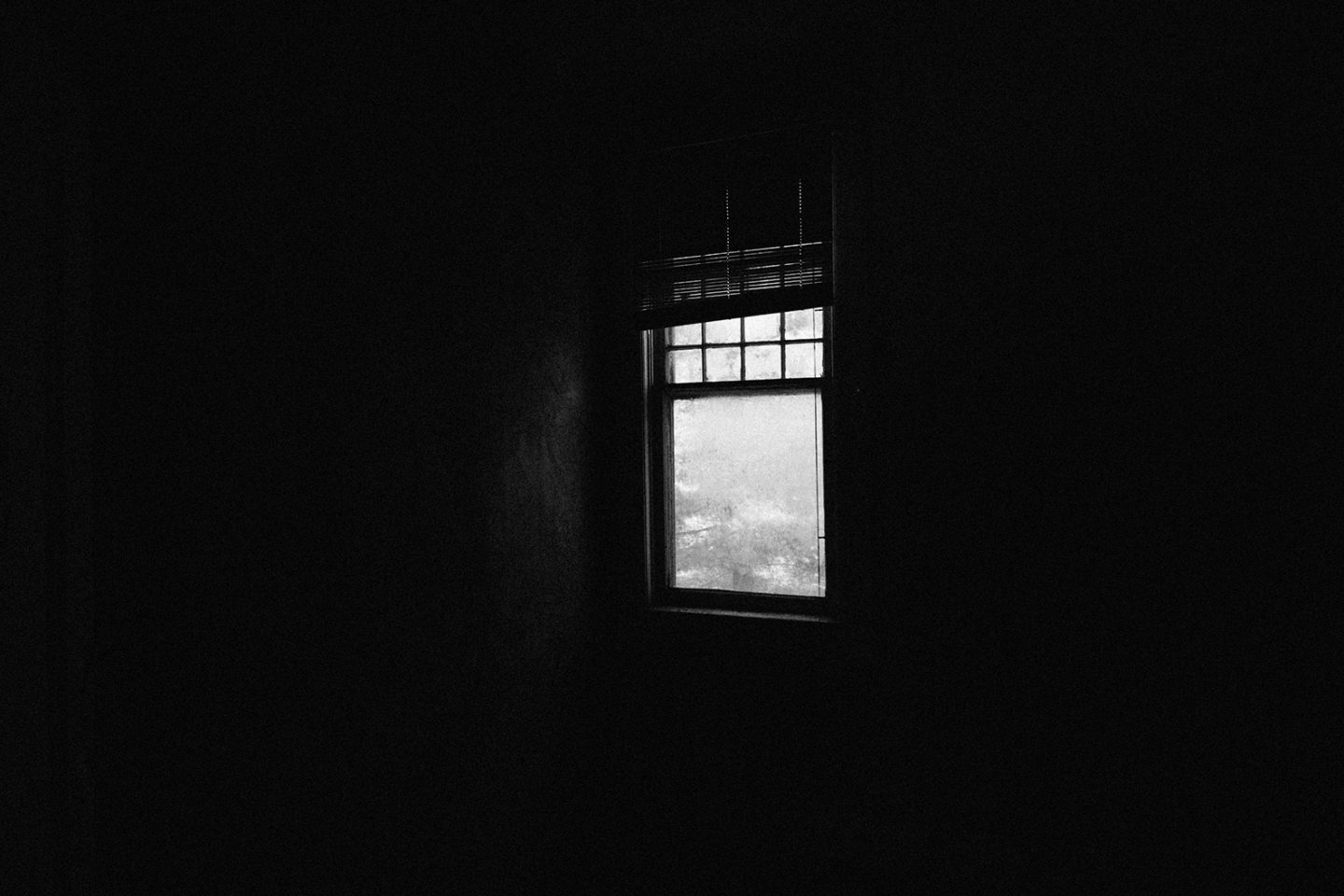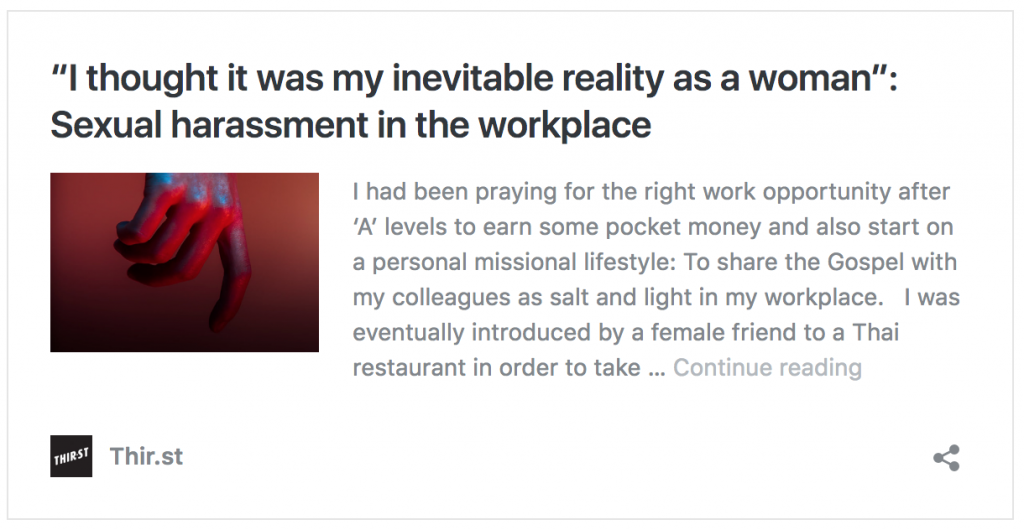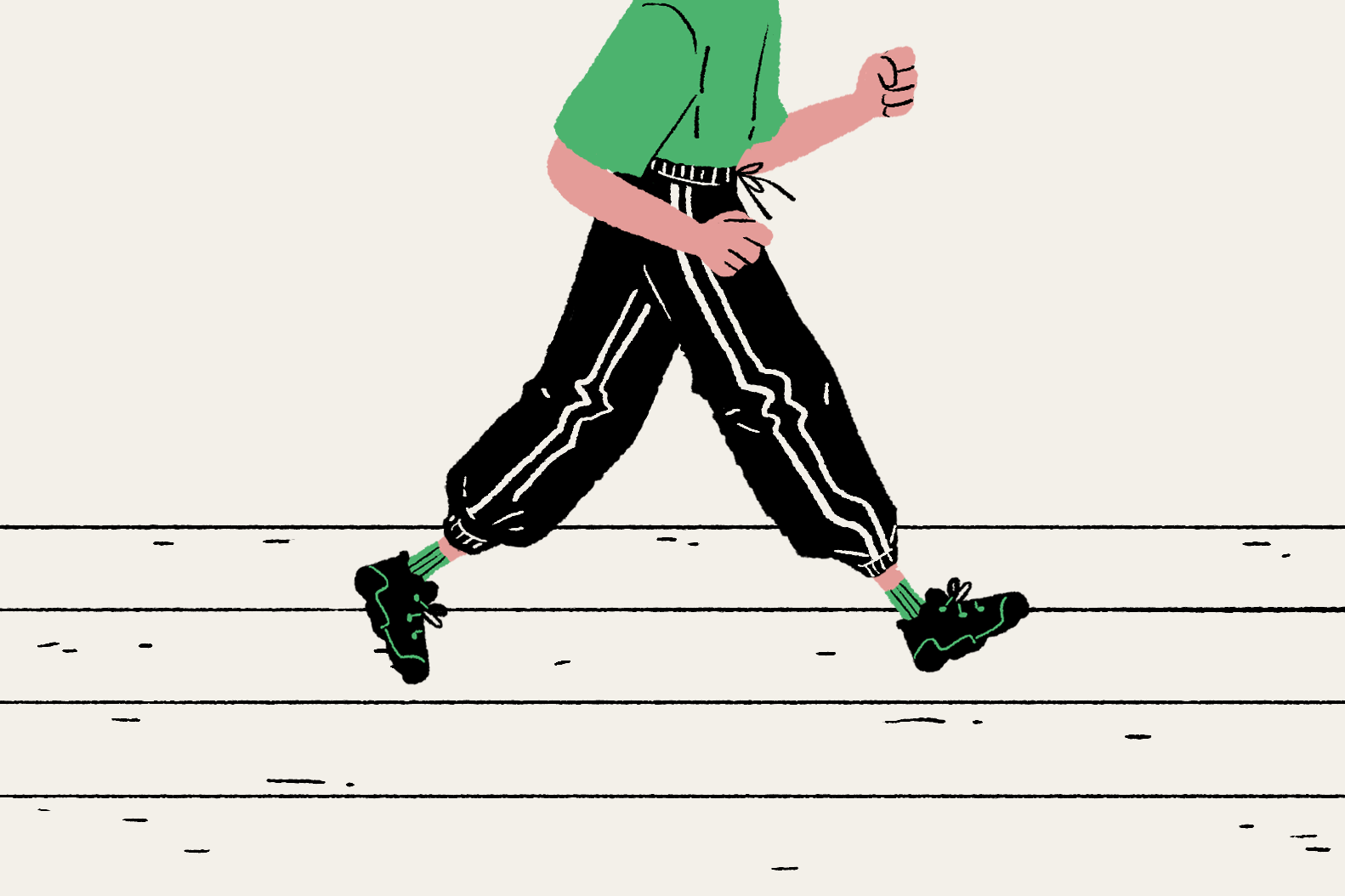TRIGGER WARNING
This article contains information about sexual assault, which may be triggering to survivors.
I woke up in an unfamiliar place. My shirt was on, but … Where were my pants? There was a man’s arm draped across my torso, and although I had barely come to consciousness I recognised who it was – an acquaintance I’d made at a cafe, and bumped into at a party the night before.
Panic started rising because it was obvious the unthinkable had happened, and I found myself screaming: What did you do last night?
His nonchalant reply: “We had sex, baby.”

I thought it would never happen to me. I was studying overseas at a liberal arts college, and although I partied on most weekends, I took pride in still being a GCG (good Christian girl). I could never identify with the rampant social activism on feminism and sexual assault that took place on campus because I thought people were to blame for their own trouble.
Sexual assault wasn’t supposed to happen to good girls like me.
At 21 years of age, I was a virgin and very proud of it. I prided myself on being able to withstand sexual temptation, even in a serious relationship that ultimately ended because of distance. I had not gone anywhere close to sex. Yes, there was plenty of partying, dancing, drinking – but sex? Not on my GCG watch.
I knew my drink had been spiked, because I’d only had the usual three drinks before I blacked out. I’d also never puked before, not even when I binged, but I did this time. And this man, as good as a stranger, had taken my virginity in my drunkenness.
You might be wondering why I didn’t go to the authorities, but here’s the honest truth: I was too in shock to even think. And in assuming sexual assault would never be my problem, I hadn’t paid attention to the discourse going on around me in university, which included protocol on filing a report in the event of such an occurrence.
When it happened to me, I didn’t know I needed to collect hair and urine samples within 24 hours of the assault. All I wanted to do was hide in a safe place and protect myself from further harm. Seeking legal help was a more disconcerting and scary thing to consider then.
For a long while after, only my parents knew about the rape, and out of their fear of social stigma, they told me not to tell anyone. In walking this out alone, I’ve had many moments of overwhelming anxiety and fear. For a long time, I couldn’t look at men who resembled my rapist without having my heart race in panic.
I was also wracked with guilt, because I’d been raised in church and taught (correctly!) to treasure purity and virginity. But not knowing how to deal with sexual violation left me feeling “tainted”, like life as a young Christian woman was no longer worth living.
However, my ordeal has led me to consider the systemic injustices that stem from being “the other”. I believe that my new desire to work in the non-profit social justice sector is a direct result of my own experience, which has led to an increased awareness and empathy for marginalised people.
The thoughts I would like to share below are distilled from a long journey of healing. I believe God was there with me that fateful night, because a visit to the gynaecologist showed that my virginity, at least the physical aspect of it, was still somehow intact.
As Christians, there can be much guilt and shame in crossing the boundaries of sexual purity, but our God is not one who condemns, but who accepts, forgives, heals and restores. In going back to Him during this difficult season, He has been my justice, my peace and my worth.
5 THOUGHTS FOR VICTIMS OF SEXUAL ASSAULT
1. You are not damaged goods
I know you feel that you might feel unlovable and damaged right now, like the last toy left on the shelf that no one could ever want, but you have to trust that Jesus loves you in all your brokenness and mistakes. My boyfriend also knows what happened in the past, and he still loves me.
2. Let God in
After the incident, I prayed on my knees for the first time, forehead to the ground, screaming in tears. No one was at home, and the grief was more than words could convey. But that was also when I felt God’s love just wrapping around me; I knew He’d heard my cries and was going to walk me through this tough time.
3. Find your family
More than ever, you need to be in a safe, loving environment with people whom you trust. If you’re away from home, find your church family. They are the ones who will support you and nurse you back to health – physically, mentally and spiritually – before the damage can deepen its hold on your inner person.
4. It’s okay to take a break
There is no shame in telling people you need time off from work or from school. If you got mugged and beaten up one random night, would anyone question your decision to take time off? Psychological trauma is serious.
If actual leave is not possible, still try to carve out some time to pray and talk to God. It’s also helpful to do things you enjoy. I took a month off university to focus on resting and rebuilding my life.
5. Your rape doesn’t define you
Take heart that God can and will redeem the devastation you have gone through. He can work it out for your good, and if you allow the Holy Spirit to restore what has been broken, miracles will happen. You will heal, and the One who designed you will always define you.
The author’s name has been changed for confidentiality.
If you’ve ever been sexually abused, assaulted or harassed, seek help – be it reporting your case to the authorities or speaking to a trusted loved one. Your well-being is top priority.










